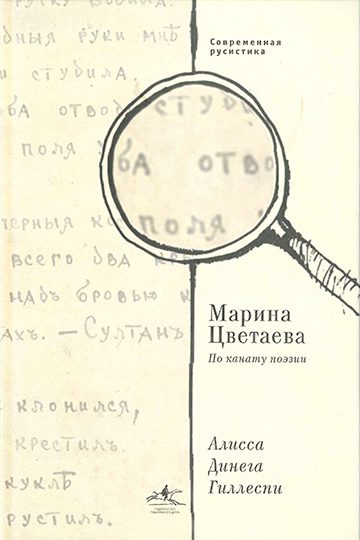
- Publisher: Pushkin House [Institute of Russian Literature of the Russian Academy of Sciences] and Nestor-Istoriia
- ISBN: 978-5-87781-036-5
- Published: April 9, 2015
(In the series Contemporary Russian Literary Studies [Современная русистика],
Gillespie’s study is devoted to a dominant theme in the poetry of Marina Tsvetaeva (1892-1941): the inaccessibility for the woman poet of the traditional myth of poetic inspiration, according to which a male poet is inspired by a female muse. Gillespie analyzes a system of recurrent metaphors and leitmotifs throughout Tsvetaeva’s creative oeuvre that serve the woman poet as an alternative myth of poetic genesis. Emblematic of Tsvetaeva’s mythic system is the image of the female acrobat, who dares to strike a precarious balance between her earthly existence in the body and her eternal essence as pure spirit. This image of the acrobat is linked, in turn, both with Tsvetaeva’s revisionist myth of Psyche and Eros, and with the image of an exitless circle. In all the variants of Tsvetaeva’s traumatic inspirational myth, the role of muse is played by her male poet-contemporaries: Alexander Blok, Boris Pasternak, Rainer Maria Rilke, Nikolai Gronsky, and Anatolii Shteiger. The main goal of the study is to analyze the mechanisms of Tsvetaeva’s poetic consciousness and, in particular, how she tries to overcome her feminine exclusion from the fundamental myth of poetic creativity through her own innovative and idiosyncratic mythopoetic strategies.
This is a revised and updated Russian-language edition of Gillespie’s A Russian Psyche: The Poetic Mind of Marina Tsvetaeva (University of Wisconsin Press, 2001).